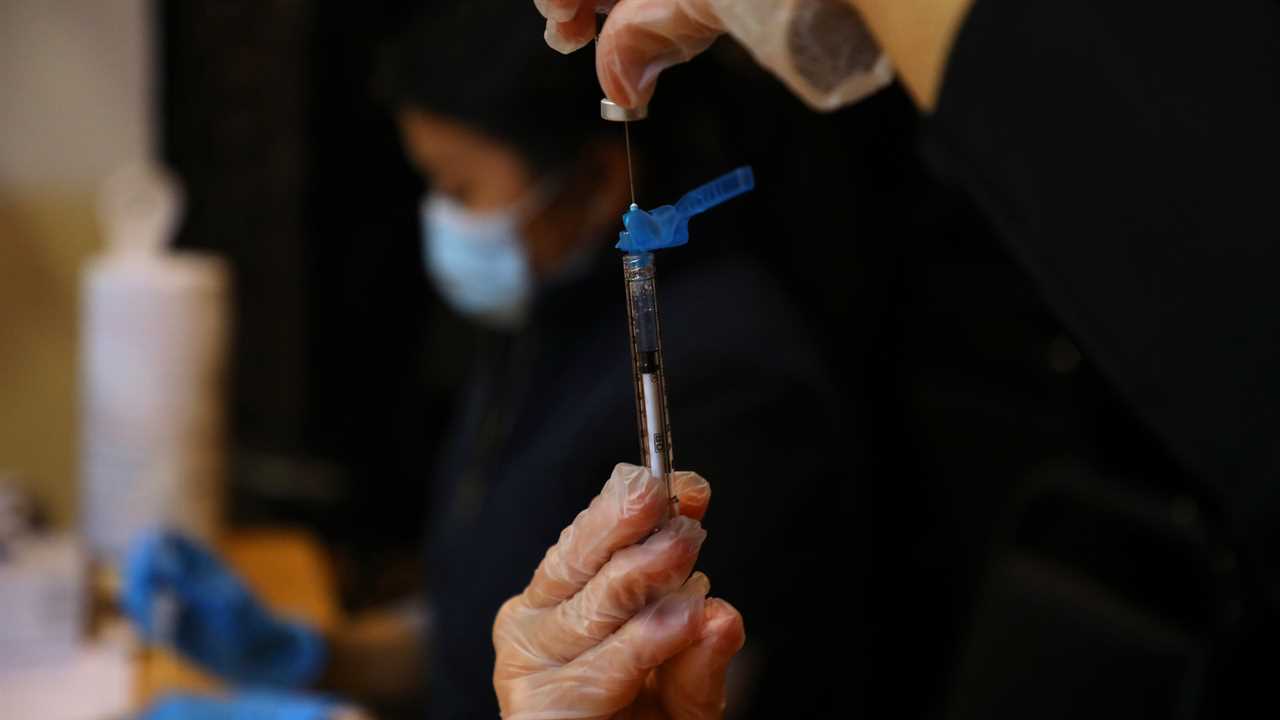
WASHINGTON — The Pentagon on Saturday halted plans to offer coronavirus vaccines next week to the 40 wartime prisoners at Guantánamo Bay after an outcry over whether the Defense Department was putting terrorism suspects before the American people.
John Kirby, a department spokesman, announced the reversal on Twitter, noting that none of the detainees had been vaccinated. A delay, he said, would let officials “assess the impact on force protection to our troops, and that’s always going to be the first priority.”
The 40 prisoners include Khalid Shaikh Mohammed, who is accused of being the mastermind of the Sept. 11, 2001, attacks, as well as six men who have been cleared for release by an interagency government panel.
The disclosure by The New York Times on Thursday of the plan to administer vaccines to Guantánamo prisoners incited a sharp backlash, particularly given the slow start of the vaccine rollout in the United States.
Most states have started vaccinating older adults, but people across the country have expressed frustration over vaccine shortages, long lines and canceled appointments.
Representative Kevin McCarthy of California, the top House Republican, chimed in on Twitter on Saturday to criticize the Pentagon’s initial proposal. “President Biden told us he would have a plan to defeat the virus on day 1,” he wrote. “He just never told us that it would be to give the vaccine to terrorists before most Americans.”
The Defense Department announced the suspension several hours later.
About 1,500 troops serve at the detention center in Cuba, most of whom are National Guard members who arrived during the pandemic and spent their first two weeks there in individual quarantine. But the Southern Command, which has oversight of the prison, has so far not disclosed how many of them were offered the vaccine and how many agreed to receive it.
Dr. Terry Adirim, the Pentagon’s principal deputy assistant secretary of defense for health affairs, signed a memo on Wednesday that authorized the vaccination of the detainees. She is a Biden administration appointee who has been serving as a senior health official at the Defense Department since July 2016.
Several hundred doses of the Moderna vaccine first arrived on the base on Jan. 7, and medical personnel received the first shots. It is not known if enough doses have reached the base to vaccinate everyone who seeks it among the 6,000 residents, who include sailors and their families, schoolteachers and contract laborers. The original plan was to begin offering vaccines to the prisoners on Monday. They were to receive information over the weekend to help them decide whether to accept the shots.
The lack of vaccinations has been a major obstacle to resuming the pretrial hearings in the Sept. 11 case, in particular because virtually everybody but the prisoners commutes to the court from across the United States, and vaccinating the prisoners, the lawyers, the judge and other court personnel has not been a priority.
The Pentagon is preparing to hold its first arraignment at Guantánamo since 2014 on Feb. 22. Under the initial plan, the defendants in that case — Encep Nurjaman, who is known as Hambali; Mohammed Nazir Bin Lep; and Mohammed Farik Bin Amin — would have had the opportunity to be fully vaccinated before their first court appearance in more than 17 years of U.S. detention.
Mr. Hambali, who is Indonesian, is held at Guantánamo as the former leader of Jemaah Islamiyah, a Southeast Asian extremist group that became a Qaeda affiliate before the Sept. 11 attacks. The other two men, Malaysians, are accused of being Mr. Hambali’s accomplices in the 2002 nightclub bombings in Baliwhich killed 202 people, and the 2003 Marriott hotel bombing in Jakarta, which killed at least 11 people and wounded at least 80.
Their case had been dormant for years. Then a day after President Biden’s inauguration, a senior Pentagon official who had been put in charge of the military commissions during the Trump administration approved the case for trial.
The Biden administration has yet to unveil its Guantánamo policy, although Defense Secretary Lloyd J. Austin III told Congress during his confirmation hearing that the administration would add no new detainees to the site and would seek its closure.






